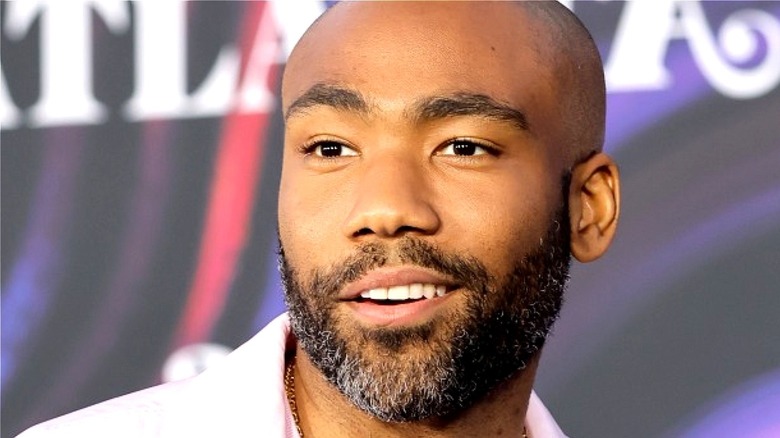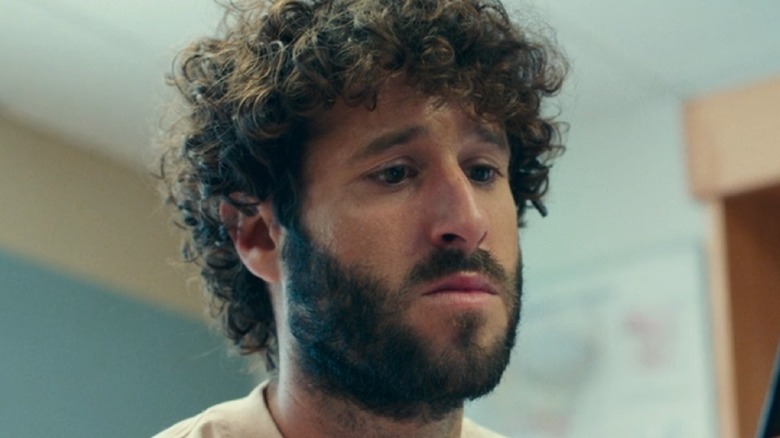How Atlanta's Donald Glover Really Feels About Lil Dicky's Dave
Donald Glover has been in the entertainment world for a lot longer than most people realize. Superfans may still remember his Derrick Comedy days from the early 2000s, when he co-starred in hilarious skits like "National Spelling Bee" and "Girls Are Not To Be Trusted" before the group peaked with their "Mystery Team" movie. His next big project was the NBC (and Yahoo! Screen) comedy series "Community," where he and castmate Danny Pudi stole the show playing Troy and Abed, respectively. He's also pursued a successful career in music under his alter-ego Childish Gambino, earning several Grammy Awards in 2019 for his poignant hit song "This is America." Ever since 2016, though, he's been busy writing, producing, directing, and starring in "Atlanta" on FX.
"Atlanta," in a nutshell, is about a young man named Earn (Glover) who struggles financially and can't seem to catch a break. But when his cousin's rap career starts to take off, he hitches himself to that rising star in hopes it'll bring him the financial stability he needs to take care of his daughter, get back in his girlfriend's good graces, and finally become fully independent from his parents. Then there's "Dave," a show on FX's sister network, FXX, that stars rapper Dave "Lil Dicky" Burd as a fictionalized version of himself. Lots of people see enough common ground between the two series that they get compared frequently. But Glover has some particular opinions about that comparison.
Glover used a food analogy to explain why comparing Dave to Atlanta feels awkward
It's understandable that an artist would get upset when something they've sculpted and crafted to be a certain way would be enthusiastically compared to another piece of art that, although good in its own right, is radically dissimilar. Glover recently vented his frustrations about the comparison in a series of tweets that were later deleted (Variety). In defense of himself during a self-interview he did at the behest of Interview Magazine, he used a food analogy about wagyu beef and smash burgers to articulate his point. "Neither is better or worse than the other," Glover said. "They're just different experiences. And I wouldn't want to have either every day. But I would never confuse the two. I expect the same of my audience."
For those who aren't foodies, another apt analogy would be trying to compare a sitcom like "Friends" to a show like "It's Always Sunny in Philadelphia." These are shows about a group of friends and their day-to-day lives, and both groups live in big cities on the Northeast Atlantic coast. But when you dig into the guts, you realize they are completely different shows. Pitting them against each other feels about as awkward as trying to hammer a square peg into a round hole. However, it's still quite common for audiences to fail to pick up on the nuances that make seemingly similar works of art truly unique from one another. Hopefully, Glover's words will help clear up the confusion and give viewers an enhanced perspective on how they view their entertainment.

